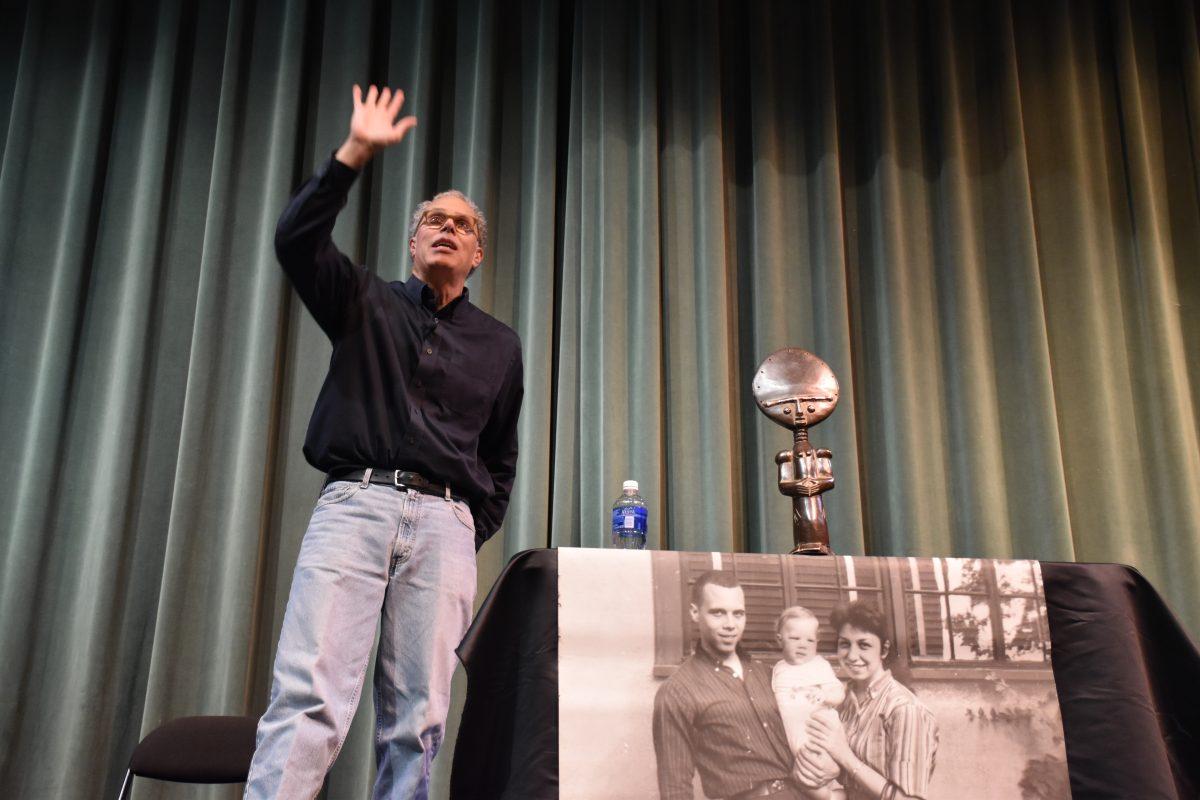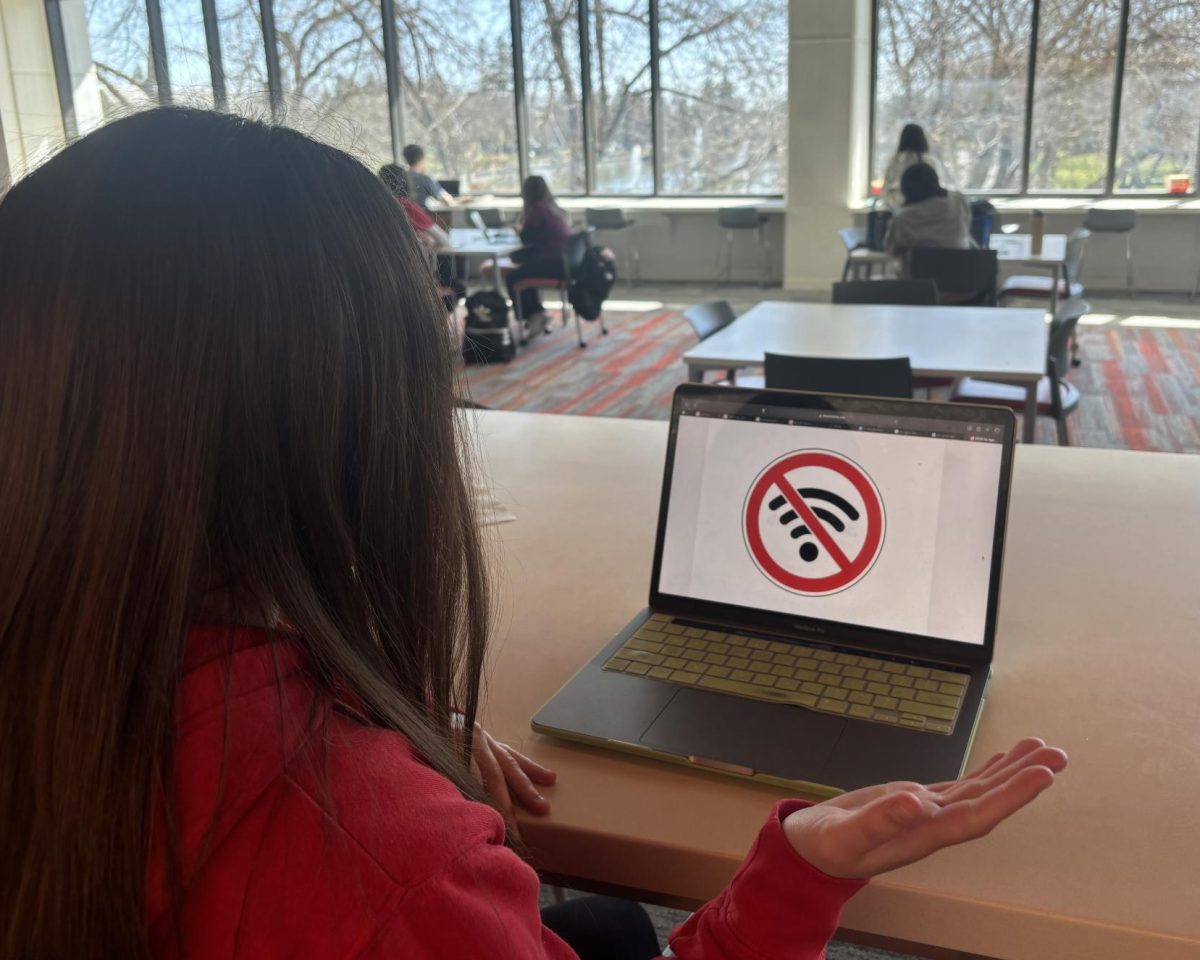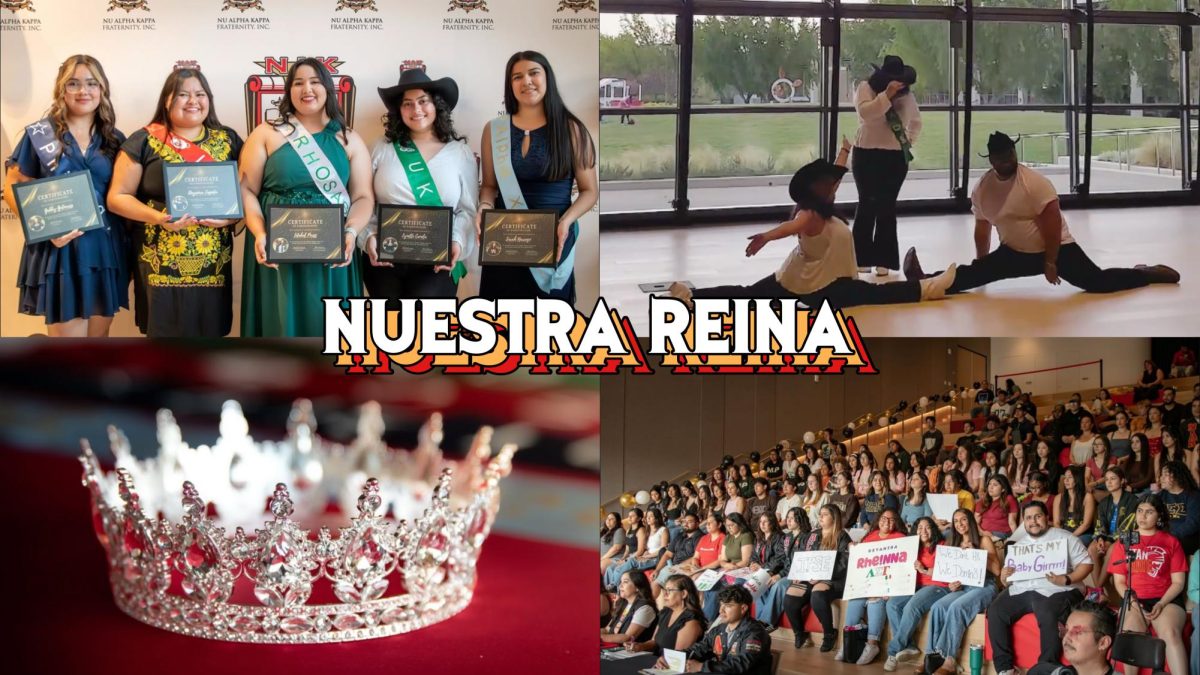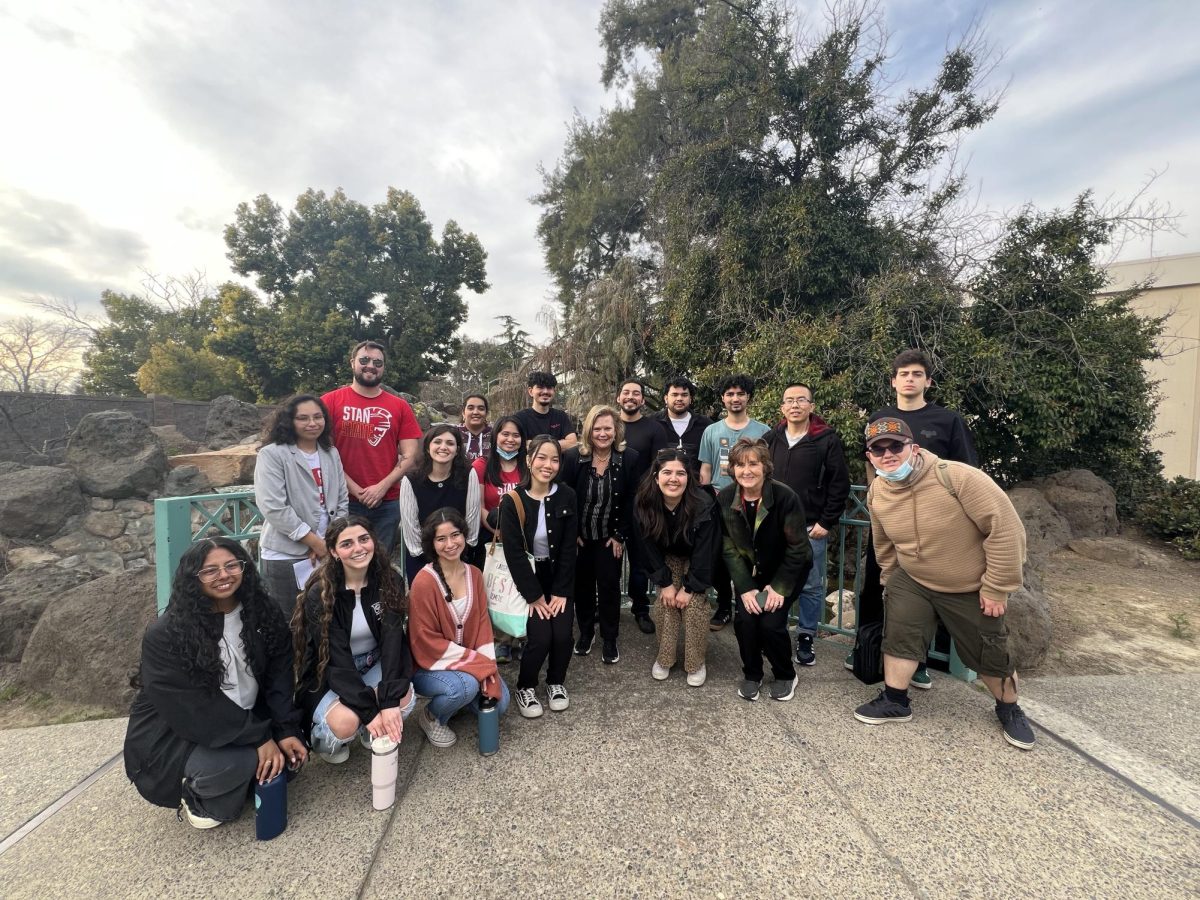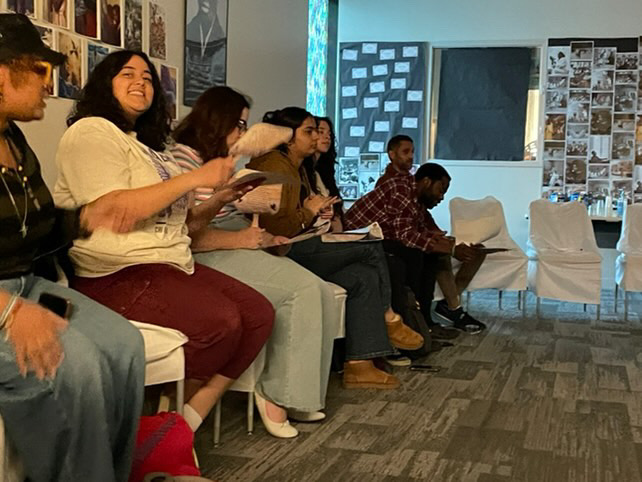On Thursday, Sep. 24 and Friday, Sept. 25, California State University, Stanislaus (Stan State) was host to theatrical genius Michael Sidney Fosberg and his play, “Incognito.”
Fosberg wrote a book about his extraordinary journey of how he discovered who he truly was and later, in 2001, turned it into a successful play. “Incognito” is written, directed and performed by Fosberg himself. Fosberg’s “Incognito” allows the audience to question culture and ethnicity and to rediscover their understanding of race.
“Incognito” begins with Fosberg sitting in front of a computer struggling to find the right words to write about his story. The play quickly moved forward when Fosberg discovered that his mother was divorcing his stepfather. Fosberg’s world turns upside down as his inner self blames his mother.
Later, he discovers that his inner conflict is due to the fact that he does not know his biological father. He sets out to find his biological father and is astonished to locate him. He becomes more stunned when his biological father informs him that he is African American. Fosberg’s eyes open to an entirely new side of himself: he is a part of African American culture and heritage. Throughout the play, one is witness to the amazing journey as he meets and builds a relationship with his father and the newly discovered side of his family.
Fosberg performs his play alone. He delivers different characters on stage with different ages, race and sex and magnificently succeeds at it.
The stage set consisted of very little, save for a desk, computer and some chairs. Other than these few items, there were no props. But, there was no need for them. Fosberg’s acting created the apparition that he was not alone on the stage. The words and emotions that he delivered painted a colorful backdrop of his deeper thoughts that he audience could feed on.
Fosberg’s different accents and body language that he portrayed for each character allowed the audience to understand the idea of stereotypes that each culture and race have. For instance, Fosberg’s grandmother had a heavy southern accent. When asked by Fosberg at the end of the play, the majority of the audience thought that the dark-skinned characters were played with stereotypes, while the minority of the audience thought that the light-skinned characters had stereotypes.
“Why do you think that we see dark-skinned people more stereotypically than we see light-skinned people? And what are stereotypes? We all have stereotypes! Stereotypes are a generalization about a group of people without taking into consideration each individual difference,” Fosberg said. “But, we all have stereotype whether we are a man or a woman, young or old, Black, White, Asian, or Christian, Catholic, Muslim or Jewish. There are stereotypes on the groups that do apply to us, but not all of those stereotypes apply to us, but that is how we judge people.”
Stan State students seemed to enjoy Fosberg’s message.
“It really opened my eyes and it’s sad that we label people,” Harbir Atwal (sophomore, Business Administration) said.
Fosberg succeeded at picking the audience’s brain in regards to their understanding of what race is or what heritage means, as well as sharing his amazing personal story. “Incognito” allowed the audience to travel along with Fosberg as he found himself, and perhaps helped the audience see themselves differently as well.
Categories:
Michael Sydney Fosberg’s “Incognito”
Alondra De La Cruz
•
September 30, 2015
After years of questioning who he really was, Fosberg shares a complete picture of himself with his parents.
Michael Fosberg
0
More to Discover

